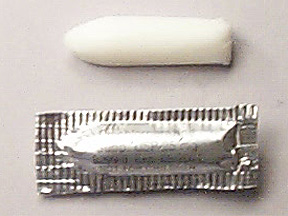
Prochlorperazine Coupons & Savings Card – Discount Prices from $19.76
Generic for: Compro
My prescription
Edit
25MG, Prochlorperazine (12 Suppositories)
Select pharmacy

CVS
$32.98
COUPON PRICE
Walgreens
$19.76
COUPON PRICE
Albertsons
$46.27
COUPON PRICE
Walmart
$73.46
COUPON PRICEProchlorperazine savings card
Show this card to your pharmacist
Walgreens
$19.76
BIN
ID
PCN
GRP
015995
LHKPX556662
GDC
DR33
Powered by
More prescriptions for schizophrenia
More prescriptions for schizophrenia
Price history for Compro (brand) & Prochlorperazine (generic)
12 Suppositories, 25MG
Average retail price for Compro
Average retail price for Prochlorperazine
Average SaveHealth price for Prochlorperazine
Our price history data is based on aggregated prescription data collected from participating pharmacies in America. Our prescription data updates daily to reflect the latest price changes. If you notice a missing data point, it means there wasn't sufficient data available to generate a monetary value for that date.
We analyzed Prochlorperazine prices for (25MG, 12 Suppositories) over the last 12 months. The average retail price was $40.00, while the average price using the SaveHealth discount card was $38.00. That's a savings of approximately 5.00% when using our Prochlorperazine coupon.
Compared to the generic version, Compro had an average price of $142.90 over the same time period. With the SaveHealth savings card, Prochlorperazine is 73.41% cheaper on average than Compro.
*Retail prices are based on pharmacy claims data, and may not be accurate when we don't have enough claims.
Prochlorperazine dosage forms
Dosage Quantity Price from Per unit 25MG 12 Suppositories $35.12 $2.93 25MG 1 Suppository $1.55 $1.55 25MG 2 Suppositories $8.09 $4.04 25MG 6 Suppositories $26.71 $4.45 25MG 1000 Suppositories $1428.10 $1.43
| Dosage | Quantity | Price from | Per unit |
|---|---|---|---|
| 25MG | 12 Suppositories | $35.12 | $2.93 |
| 25MG | 1 Suppository | $1.55 | $1.55 |
| 25MG | 2 Suppositories | $8.09 | $4.04 |
| 25MG | 6 Suppositories | $26.71 | $4.45 |
| 25MG | 1000 Suppositories | $1428.10 | $1.43 |
